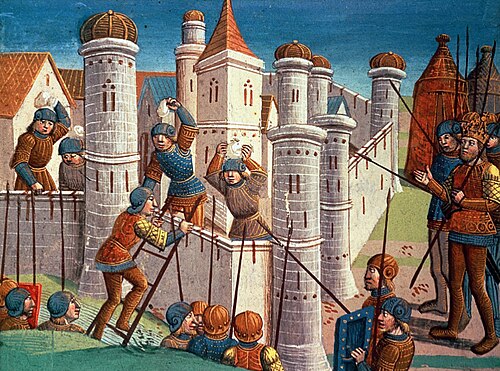Andreas Palaiologos
 Andreas Palaiologos.
Andreas Palaiologos.Andreas Palaiologos (1453–1502) was the elder son of Thomas Palaiologos, Despot of the Morea, and a nephew of Constantine XI Palaiologos, the final Byzantine emperor. After the fall of Constantinople in 1453 and the Ottoman invasion of the Morea in 1460, Andreas's father fled to Corfu with his family. Upon his father's death in 1465, Andreas moved to Rome and was recognized as the titular Despot of the Morea and as the chief claimant to the ancient imperial throne. Although his father had never claimed the title, Andreas proclaimed himself "Emperor of Constantinople" from 1483 onwards, a claim that was supported by some of the Byzantine refugees who lived in Italy. Andreas traveled around Europe in search of a ruler who could aid him in retaking Constantinople, but rallied little support. In 1481 an expedition he started organizing to restore the Byzantine Empire was canceled. He died in poverty in Rome in 1502 and was buried in St. Peter's Basilica.








